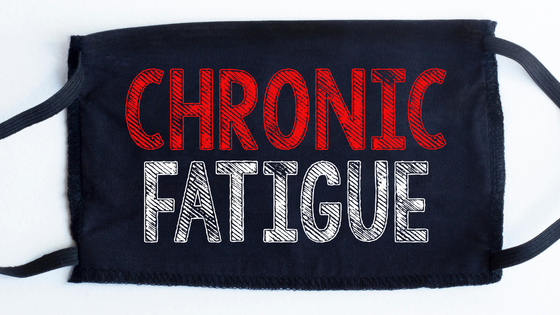What is Hashimoto’s Thyroiditis?
Hashimoto’s Thyroiditis (Hashimoto’s) is an autoimmune disease, which attacks and destroys the thyroid gland. It encourages immune cells to mistakenly attack the thyroid gland, which means that it doesn’t produce the right amount of thyroid hormones. This can have a big impact on the rest of your body because thyroid hormones are super important for several functions of the body.
Not sure what causes Hashimoto’s or whether you might be affected? Here’s what you need to know about the condition and what the outlook is if you’re diagnosed.
What Causes Hashimoto’s?
Although there is not one known single cause of Hashimoto’s, doctors have found some risk factors that might increase your risk of developing this autoimmune disorder. Here are some of the more common risk factors leading to the condition:
Genetics – One of the most common risk factors that can cause Hashimoto’s disease is genetics. If you have someone in your family with this or any other autoimmune disease, particularly a sibling, parent, or grandparent, you are a lot more likely to develop it. It doesn’t have to be the same disease either; if your mom had lupus, you could develop Hashimoto’s. Experts think that for people with a genetic predisposition to autoimmune disease, something acts as a trigger. This could be a virus or specific types of bacteria, for example.
Iodine – There have been some studies that show having too much iodine in your body can actually lead to having problems with your immune system. This may lead to Hashimoto’s, which can then also lead to hypothyroidism.
Hormones – The other hormones in your body can also lead to autoimmune disorders like Hashimoto’s. This is often from sex hormones, such as those that develop following puberty or hormones that occur when you are pregnant or nursing.
Radiation – Excessive radiation exposure can lead to a lot of different medical conditions and ailments, including Hashimoto’s disease. This may be from being near radiation at your job or getting radiation treatment for cancer.
Leaky Gut – Most people with autoimmune disease also have a “leaky gut”. This basically means that the intestinal walls aren’t as robust as they normally would be, and undigested food is able to find its way into the bloodstream. This can be attacked by the immune system, which encourages an immune response.
Who Gets Hashimoto’s?
Women are more likely to be affected than men. For both genders, there’s a bigger risk factor for developing Hashimoto’s Disease if anyone in your family has it too.
There’s an autoimmune link too, and you can be more likely to get Hashimoto’s Disease if you also have type 1 diabetes, lupus, celiac disease, rheumatoid arthritis, vitiligo, Sjogren’s Syndrome, autoimmune hepatitis or Addison’s Disease.
Technically, it can develop at any age but it’s more common between the ages of 40 and 60.
Symptoms of Hashimoto’s
To begin with, Hashimoto’s doesn’t always cause any obvious symptoms. Symptoms of the condition are usually the same as those of other types of hypothyroidism, and doctors recommend a thyroid function test if the following early signs are detected. Individual symptoms may not be of concern, but if a cluster or pattern exists medical advice should be sought.
Common Hashimoto’s Symptoms
- Unexplained fatigue
- Dry skin
- Pale puffy face
- Increased sensitivity to cold
- Difficulty concentrating/Memory issues
- Unexplained weight gain
- Joint and muscle pain
- Constipation
- Dry or thinning hair/hair loss
- Fertility problems
- Prolonged or excessive menstrual bleeding
- Depression
Complications of Untreated Hashimoto’s Thyroiditis
Left untreated, an underactive thyroid gland caused by Hashimoto’s disease can lead to a number of health problems.
- Heart Disease – An increased risk of heart disease can occur when hypothyroidism is not addressed. High levels of blood cholesterol may occur in people with this thyroid gland problem, and it has been known to cause an enlargement of the heart and even heart failure. Additionally, hypothyroidism and the lower levels of thyroid hormones can cause build-up fluid around your heart.
- Myxedema – A life-threatening condition called myxedema can develop due to long-term untreated hypothyroidism. Symptoms include drowsiness and profound lethargy followed by coma. This condition may be fatal in severe cases, however, it is a very rare complication of Hashimoto’s disease.
- Birth Defects -Higher risks of birth defects have been found in babies born to woman with untreated hypothyroidism caused by Hashimoto’s disease. It is common knowledge among medical practitioners that these children are more prone to intellectual and development problems. Endocrinologists believe there may be a link between hypothyroidism pregnancies and children born with birth defects such as cleft palate, heart, kidney or brain malfunctions. This is why when you become pregnant, your doctor orders blood work to be done. They want to find out if you have a thyroid disorder or other issues that might increase the risk of problems with your baby.
- Goiters – If you have untreated hypothyroidism, you might end up with a condition called goiter. A goiter may occur when the constant stimulation of the thyroid to release more hormones cause the gland to become enlarged and prominent. It is not uncommon for people to not realize they even have a thyroid condition until they end up with a goiter. An advanced goiter can cause problems breathing and swallowing. If you see a bump in front of your neck, don’t hesitate to get medical treatment as soon as you can.
- Depression – One significant danger of having hypothyroidism that isn’t treated is developing depression. Depression may occur early in Hashimoto’s disease, increasing over time and sometimes leading to slowed mental functioning.When your mental health is at risk, it can lead to a lot of other issues in your life as well. With depression, it can cause you to feel hopeless and even put your life at risk if it gets severe enough. Depression affects your job, your health, your happiness, and your relationships with your friends and loved ones. You should seek help for your depression and consult a doctor about treating your thyroid condition as well. A decrease in sexual desire (libido), in both men and women is also common.
How is Hashimoto’s Disease Treated?
It is possible to have Hashimoto’s Thyroiditis for years without experiencing any symptoms. The disease typically progresses slowly over years and can cause chronic thyroid damage, which then results in a persistent drop in thyroid hormones in the blood.
Medical tests of the thyroid function determine the presence of hypothyroidism caused by Hashimoto’s. The detection of Hashimoto’s depends on how much the thyroid gland has been damaged. If there’s only a small amount of damage, it may not have triggered hypothyroidism. If the damage is more significant and hypothyroidism has developed, it’ll need to be treated.
When this condition is detected, it is treated with a replacement synthetic hormone. This involves using synthetic thyroid hormones to replace what the body isn’t producing by itself and balance hormone levels. When you first start taking thyroid medication, it’s likely that there will be a bit of adjustment to find the right dose for your needs. In between, blood tests can see how your thyroid levels are responding until you find a stable level.
Lifestyle Factors to Treat Hashimoto’s Disease
Lifestyle changes that can help mitigate Hashimoto’s
- Remove Gluten – Cutting gluten from your diet can sometimes help with symptoms of Hashimoto’s. Gluten sensitivity is linked to a lot of autoimmune disease, including Hashimoto’s. You may not necessarily have gluten sensitivity or Celiac disease, but it can be a factor in leaky gut. Removing gluten from your diet can be a big first step in healing your gut and keeping Hashimoto’s symptoms in check.
- Try an Elimination Diet – With Hashimoto’s, other foods can potentially make leaky gut worse too. These include dairy, eggs, quinoa, corn, rice and vegetables from the nightshade family (eggplant, tomato and peppers, for example). Whether or not you react to these can be very personal and an elimination diet can help to work out what your specific leaky gut triggers are.
- Avoid Soy – When you have hypothyroidism, you are already struggling with the reduced thyroid hormones. Soy affects your body’s ability to use thyroid hormones properly, so it creates an even bigger problem. If you follow a plant-based diet, look for other sources of protein and nutrition.
- Limit Cruciferous Vegetables – Another dietary guideline that is determined by the type of thyroid condition you have is when it comes to cruciferous vegetables. These include broccoli, cauliflower, cabbage, kale, turnips, and brussels sprouts. If you have hyperthyroidism, it can be great to have these vegetables since it helps to naturally lessen the production of the thyroid hormone. However, if you have hypothyroidism, you don’t want to reduce the amount of hormones any more than the condition is already causing. In this case, try to reduce how many of these vegetables you eat. When they are consumed, it is best to eat them cooked, not raw.
- Eat a nutrient-dense diet – It’s not just about taking things out of your diet; adding nutrient-dense foods like fermented foods and bone broth can help to heal a leaky gut and improve thyroid function. Eating plenty of whole, nutrient-dense foods is key.
- Add in more Omega-3s – Nutrient dense foods that are high in Omega-3s are important for strengthening your thyroid. This is true for both hypothyroidism and hyperthyroidism. Omega-3s are commonly found in fish, including tuna, mackerel, and salmon. You can also get these fatty acids from flax seed oil, olive oil, and walnuts.
- Increase Antioxidants – You want to have as many antioxidants as you can get, regardless of the type of thyroid condition you have. With proper antioxidants, it helps to balance out your immune system, so even if you have Hashimoto’s or Graves’ Disease, the antioxidants will help you to get the right amount of hormones from your thyroid gland. Berries are one of the best sources of antioxidants, particularly with blueberries, raspberries, and strawberries.
- Focus on Lifestyle – Reducing stress, getting plenty of sleep and gentle, regular exercise are also super important lifestyle moves for living with an autoimmune condition. Studies have shown that yoga can help to manage hypothyroidism symptoms.
If you are looking for more tips and support, join me on my group page, The Village – A Natural HEALing Community, to get tons of information and tips to help you take your HEALTHY EATING and ACTIVE LIVING to the next level.





+leave a comment . . .